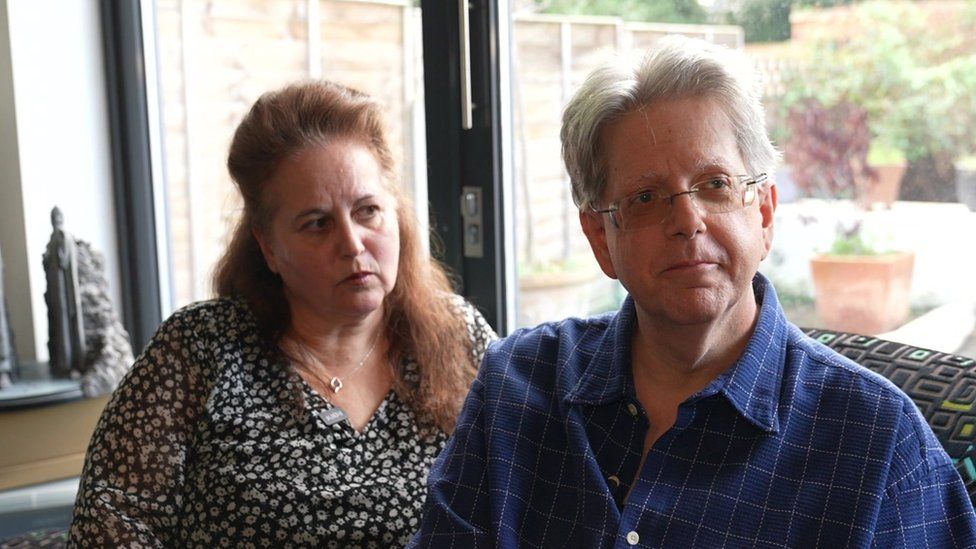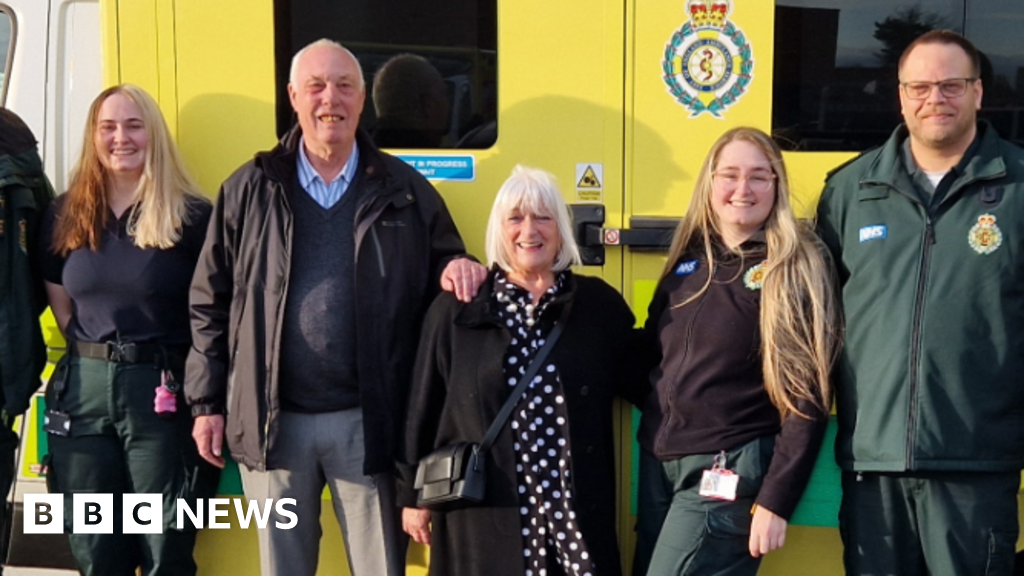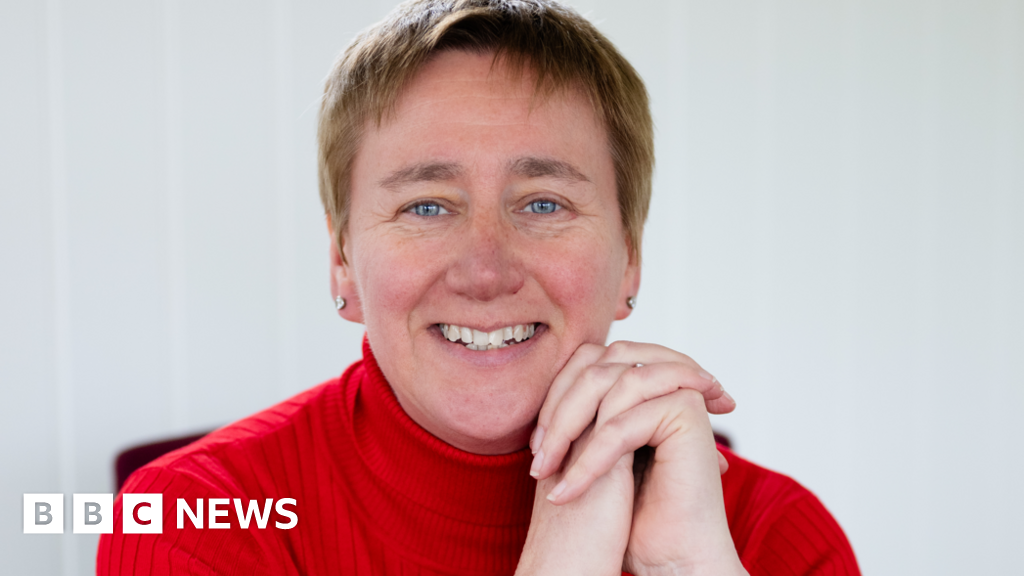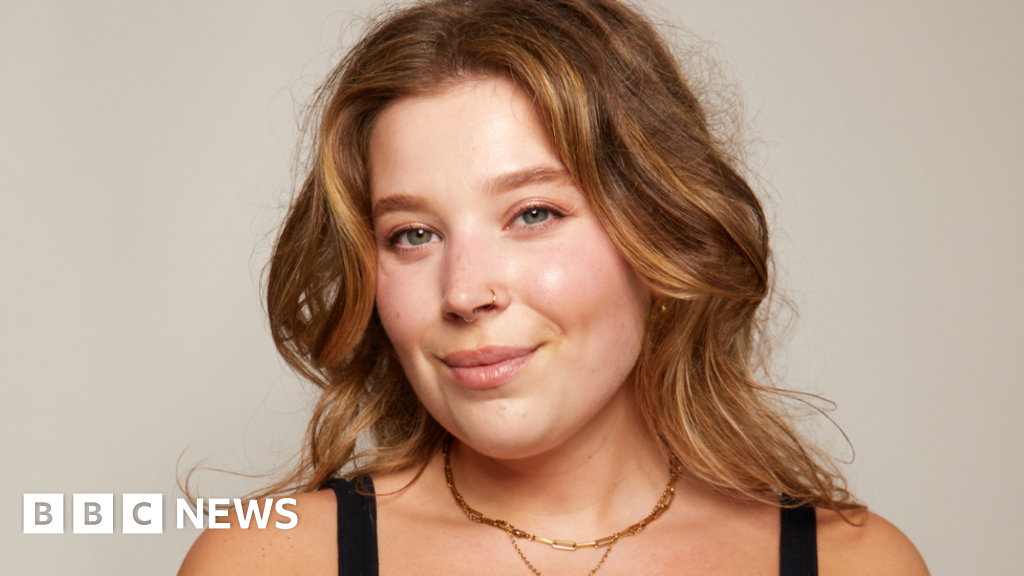
Tertia Eisenberg says the trial has been "an extraordinary miracle" for her husband Adam
By Ross Miklaszewicz
BBC News
A charity worker who was given months to live has become the first patient in the world to receive a type of experimental liver transplant.
Adam Eisenberg, 58, from north London, was diagnosed with liver cirrhosis and non-alcoholic fatty liver disease.
When put on palliative care, he said he was effectively "sent home to die".
But after taking part in the ground-breaking clinical trial, Mr Eisenberg is still alive a year later.
The trial, called the DeFat study, is being held at the Royal Free Hospital in London. It aims to make better use of livers that are currently deemed unsuitable for transplant.
Sponsored by the University of Oxford, the project aims to understand if fatty livers can be treated with drugs to make them more suitable for transplant.
As part of the study, some of the livers will be treated with the drugs to help release fat from cells, which will then be filtered using machines.
Some livers on the trial will be treated with drugs and filtered using machines
It comes as hundreds of people are on the waiting list for a new liver in the UK.
There are not enough donor organs available and the Royal Free said roughly a third of all livers donated were declined and discarded due to the presence of excess fat within the liver cells.
This condition means the liver cannot tolerate being stored and transported, and is less likely to result in a successful transplantation.
According to the the Health Survey for England in 2021 a significant proportion of adults in England are overweight or obese.
The survey estimates 37.9% are overweight and more than one in four (25.9%) are obese, suggesting the number of livers unsuitable for transplant could continue to grow - putting pressure on the availability of donated livers.
Prof Joerg-Matthias Pollok says if the trial succeeds it "opens a whole array of treatment options"
Prof Joerg-Matthias Pollok, clinical lead of the HPB and liver transplant service at the Royal Free Hospital, said: "We are all exposing our livers to damage like alcohol consumption [and] unhealthy fatty foods, and in some of us that fat is deposited in every single liver cell as little droplets and that makes organs less viable, less healthy and less usable as donor organs."
Prof Pollok said he was optimistic about the potential uses of such technology in the future, adding: "We could treat cancers in livers that we put on the machine and then put them back into the patient itself. So it opens a whole array of treatment options."
At a double-blind trial, none of the surgery team - nor the recipient - knows if the specific liver has been treated with drugs to release the fat cells.
This is the case for Mr Eisenberg's new liver, but the Royal Free says even livers that are not treated with the drugs have to meet strict transplant criteria.
Mr Eisenberg said the transplant would be a success for him if he could move more
Mr Eisenberg's wife Tertia says the trial has been "an extraordinary miracle" for her husband, adding she has already seen the benefits of the transplant on his health.
"When Adam first came home a year ago, he could barely get to a commode. He's now walking without a stick," she said.
The couple added they were incredibly grateful to the team at the Royal Free, but Mr Eisenberg stressed they will see his transplant as a success when two things happen.
"For Tertia, it'll be when the bed goes from the dining room. That's the benchmark.
"For me, it'll be when I can bend down to the floor or pick up a box. That would be the benchmark for me."
Listen to the best of BBC Radio London on Sounds and follow BBC London on Facebook, X and Instagram. Send your story ideas to hello.bbclondon@bbc.co.uk
Related Internet Links
The BBC is not responsible for the content of external sites.
 (1).png)
 1 year ago
13
1 year ago
13













